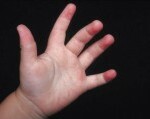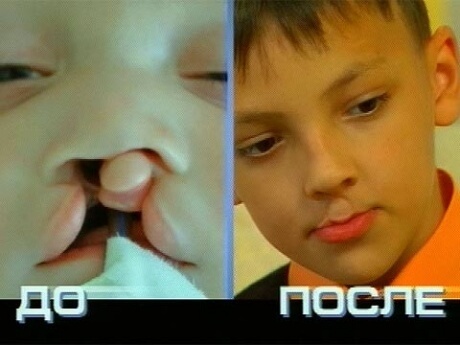Harmless antipyretic agents for children
 When a child is sick, parents try to do their best to get him to recover as soon as possible. Most parents are frightened by fever, because it is very harmful to the body and delivers a lot of unpleasant sensations to the baby. Therefore, caring parents try to bring it down as soon as possible. But, unfortunately, not all parents do it right.
When a child is sick, parents try to do their best to get him to recover as soon as possible. Most parents are frightened by fever, because it is very harmful to the body and delivers a lot of unpleasant sensations to the baby. Therefore, caring parents try to bring it down as soon as possible. But, unfortunately, not all parents do it right.
Most often, the temperature results from a viral infection or other disease. In any case, high temperature is a protective reaction of the body. To knock down the temperature of the baby should be very carefully and correctly. To do this, you can use special antipyretic agents for children who are sold in a pharmacy, or use folk methods.
Every parent should understand that the temperature stops the multiplication of pathogens in the body when the temperature is above 38 degrees, then the microbes are killed. The presence of temperature indicates that your baby's immune system is okay. It is recommended to reduce the temperature only in those cases when it exceeds 38.5 degrees. And until this moment it is necessary only to monitor the general condition of the crumbs. How to do it? Very simple. Carefully ensure that the baby is drinking as much liquid as possible. Drinking should not be sour and warm, but not hot. Also you need to monitor the temperature in the room - the air should not be dry and should be moderately cool. Watch out for the child's clothes - it should not be too warm. The skin should remain dry and slightly cool. If the baby sweats profusely, then wipe it with a towel soaked in cool water - this will speed up the heat transfer process.
As soon as the body temperature exceeds 38.5 degrees, it is necessary to take measures to eliminate it. However, in a number of cases it is necessary to bring down the temperature before it reaches 38 degrees:
- in diseases of the nervous system;
- for diseases of the cardiovascular system;
- if the baby previously had subfebrile convulsions;
- if the child is less than three months old;
- if the health of the crumbs is significantly impaired.
Doctors do not recommend to knock down temperature by themselves. In such cases it is necessary to immediately call a doctor at home. All antipyretic therapy should be carried out under the strict supervision of the pediatrician, since sometimes even the most harmless antipyretic drugs can lead to serious complications. Long-term studies have shown that those children who have been taking aspirin at the age of three years are much more likely to have had bronchial asthma by the age of six. Therefore, doctors recommend using antipyretics only in extreme cases. If this is not necessary, do not give the child any means of temperature.
We choose the antipyretic medicine
Unfortunately, today there is not a single antipyretic medicine that would be absolutely harmless for babies. Each drug poses a potential threat to the health of the child, because they can lead to serious complications of a different nature. But it is worth noting that not all antipyretic drugs have the same level of danger.
Doctors believe that today the most harmless antipyretic drugs for children are those that have paracetamol in their composition. With a single take the drug can reduce the temperature in the child for several hours. But if the temperature is too high, the effect of such drugs will not last long.
In the pharmacy, paracetamol can be found in different forms - in the form of powders, tablets, pops, syrups, rectal suppositories. The most popular pharmacy antipyretics for children are panadol, kalpol and efferalgan. When choosing, be guided by the form of the drug.
Next on the safety and popularity of antipyretic drugs - Ibuprofen. It is also sold under the names "nurofen" and "ibufen".This drug reduces the temperature much more efficiently and faster than paracetamol. But, unfortunately, this drug has much more side effects than paracetamol. Please note that doctors strongly do not recommend giving it to children under twelve months old.
It is best for children to use drugs in the form of syrup. Firstly, in this form the baby will be easier to drink, and secondly, in this form the drug is absorbed much faster. For small children it is better to use rectal suppositories - it is much more convenient.
How to use antipyretic agents correctly?
To reduce the risk of side effects from the drug, it must be properly used. Remember some simple tips:
- Always read the instructions before using the drug. This should always be done, even in cases where you have given such a drug to your child before. And be sure to keep the instruction until complete recovery, it can come in handy at any time.
- Use only as directed. Paracetamol can only be used as an antipyretic, even though some people use it as an anesthetic. And paracetamol can be used only if the child's temperature is above 39 degrees.
- Observe the age of the child. Always consult a pediatrician before using the drug. Also remember that paracetamol should not be given to babies less than three months old.
- Do not exceed the indicated dosage. In no case do not give the child a large dose of antipyretic. In addition, remember that the systematic use of antipyretic drugs significantly increases the risk of complications.
- The compatibility of medicines must be considered. Not all medicines are combined. For example, a child should not be given antipyretics if he takes antibacterial drugs. In any case, the reception of any funds must be carried out under the strict supervision of a doctor.
- After you give the child an antipyretic agent, be sure to observe it for an hour. If he has reddening of the skin, the hands or feet will become cold, call the doctor right away. Before the arrival of an ambulance, rub the baby's skin with feet and hands, and give him warm tea.
- Do not give the child any antipyretic drugs if he has a tummy. In this case, you can skip such a serious illness as appendicitis. It will be much better if you immediately show the child to the doctor.
What antipyretic drugs should not be given to a child ?
From the above, you can draw a simple conclusion. The child should not be given antipyretic drugs that do not contain paracetamol or ibuprofen. Remember the following drugs that should never be given to children: analgin, amidopyrine, phenacetrine, antipyrine, acetylsalicylic acid.
All of the above drugs cause serious complications: gastric and intestinal bleeding, ulcerative lesions of the gastrointestinal tract, acute renal failure. For example, acetylsalicylic acid can lead to the development of Ray's syndrome( severe renal failure).With such a disease in 50% of cases, a lethal outcome is observed. Analgin often leads to violations of the normal functioning of the circulatory system. Therefore, do not risk the health of the child and always take only those drugs that the pediatrician will appoint.



